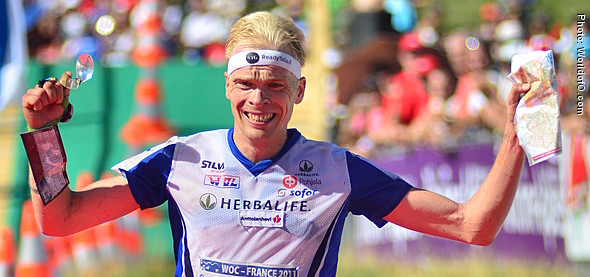
Q: Do you ever think of going back to using compass? Ikonen: I don’t think so. Going back in this issue would be… yeah, bad development.
Ikonen – who took silver at this years World Champs long distance in France – 10 years after his previous individual WOC medal – started using a compass again in 2010. The interview below was published at OrienteeringOnline in 2001 – the international orienteering news website driven by Ivan Nagy some 8-10 years ago which has now turned into OrienteeringOnline Cup (or OOCup).
With the silver medal of Ikonen at this years World Championships it was interesting to reread the interview. I therefore decided to republish it here. Thanks to OrienteerignOnline for the original interview.
Interview with Pasi Ikonen, OrienteeringOnline.com, 2001
Q: When did you decide to put your compass away and why? You really never use it, no matter what terrain?
Running without compass is my way to turn my orienteering into a piece of art
It was in 1998. I ran into Eino Havas who is my coach nowadays. He had these crazy thoughts about orienteering and I had the same sickness… I did it because I was unsatisfied with my concentration in orienteering. I found myself TOO often just running with compass and not knowing my location. So I decided to find best treatment and I threw my compass away. I have it sometimes with me, but I don’t have reasons to use it anymore. It’s also a big challenge to run without compass and I have figured out that the winner of biggest challenges is always the best. Because of that challenge-thing and image (haha!) I never use compass. Not even in night orienteering or flat terrains. People often consider me stupid because I don’t use compass. They say that why don’t you use it, it’s “legal help”. So, they miss the point because I don’t want help. Just map & me! What can I say, hmm… I’ve decided to be the best orienteerer in the world and I want to be perfect in my orienteering. To be perfect you need skills, and running without compass is my way to turn my orienteering into a piece of art.
Q: Do you have any problems in flat terrains, which are very poor in details? Do you make any special training for keeping direction without compass?
I have sometimes big problems, because I’m “just starting” my way. Flat terrains are not so difficult without compass. But flat terrain without details is challenging. It’s pretty nice feeling when it works; you have been running for 500 metres in “white forest” and you still know the direction exactly. That’s really something. Completely different feeling than with compass. So, I don’t do any special training for keeping direction because I do it all the time. But I I think I should do it because the consciousness of development could be more easily seen that way. I could see what I’m doing right and what wrong. When I do just ordinary training I often see just the big picture. And those important tiny details are hiding somewhere…
Q: Do you ever think of going back to using compass?
I don’t think so. Going back in this issue would be… yeah, bad development.
Q: Do you know any other Elite orienteers who don’t use compass?
Many other elite orienteers don’t use it much but most have it with them.
Q: Do you feel emptied out now that you’re World champion at this young age already? What are your motives for the next season?
Little bit. But my orienteering has always been based on enjoying orienteering and thank god it hasn’t changed. I thought that when I win the championship I’d be 30 years old, but now it came and I can’t help it… haha! Fortunately, there are some good things in winning the title. Now I don’t need to chase the world championship and I can concentrate on more important things like training, orienteering and my girlfriend, he he! Next season I’m going to learn the good runnability -terrains. So, I must get to work now!
 World of O News
World of O News
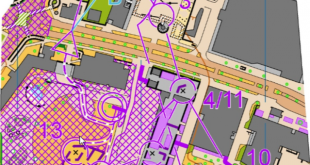
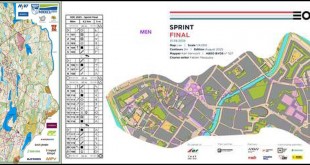
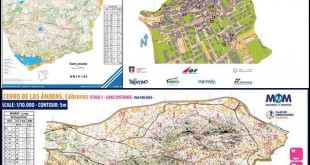
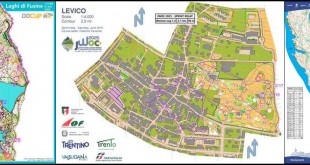
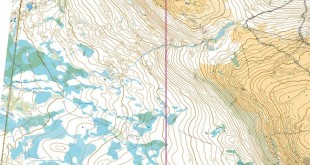
“A race is a work of art that people can look at and be affected in as many ways they’re capable of understanding.
Some people create with words or with music or with a brush and paints. I like to make something beautiful when I run. I like to make people stop and say, ‘I’ve never seen anyone run like that before.’ It’s more than just a race, it’s a style. It’s doing something better than anyone else. It’s being creative.”
Orienteering is to get to the control as fast as possible and as safe as needed to minimize the time losses. Reading the map gives lower speed, reading and checking too many details gives lower speed. Using the compass towards larger features is a very high speed technique. It can be used effectively in certain terrains and not in other terrains. Direction control is one very important part of orienteering and compass is half of direction control IMO. Therefore, running without a compass is a way of making orienteering harder and not easier.
I have tried myself to remove the compass and it gave me a better flow in the map reading, but it did not increase my speed.
I would rather recommend training technique changing methods and parting up legs using the right method at the right place for getting good flow than remove the compass and force oneself to read the map too extensively
… took Pasi 10 years to find out about that:) Orienteering with a compass can still be art – just look at TG..
Exactly. TG opened my eyes for full speed no mistakes, it is all about the art of finding the fastest and safest route and that is not easy, in fact it is harder than just reading all the details along the shortest route on the leg…
I think the compass is a helper especially for (short distance) direction control. In my opinion running straight after the compass needle (with control only over the distance and the direction, not the terrain) is not orienteering, and a terrain that requires long distance “blind flying” is not worth to do orienteering in it. :)
And last but not least the compass helps a lot when you are lost ;)
I remember being fascinated by the fact Pasi has won at 2001 without a compass, i witnessed it with my own eyes as i too participated on that championship.
After a while i started running (training and competing) without a compass, and like Pasi, i felt it being like art. Yes, orienteering speed has gone slower, but accuracy has gone better by far, thus the total time completing a course has reduced. The feeling of knowing exactly where you are – all the time – makes orienteering a blast.
That said, i do use a compass from time to time, mainly on important events, just for the sake of ‘knowing its there for me’, but not really needing it.